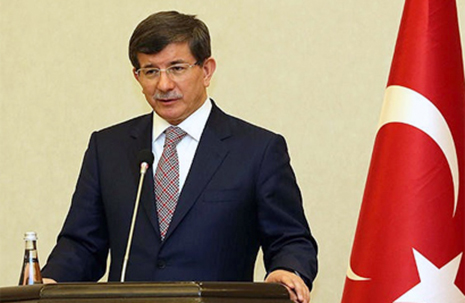In a late night interview with Al Jazeera Arabic TV, Davutoglu said Turkey’s demand for a safe haven for refugees includes Syria`s highly-populated regions along the Turkish border, which too had been hit hard by the Bashar al-Assad regime and the Islamic State of Iraq and the Levant, or the ISIL.
"It must be in the north of Aleppo as it has been under threat from both regime and the ISIL militants," he said.
Turkey has been pushing the international community, including the UN to establish a no-fly zone and a safe haven for refugees inside Syria near the Turkish border. Thousands of civilians from the Syrian border town of Kobani have been fleeing into Turkey since mid-September when their homes came under attack by ISIL militants.
Davutoglu said the safe havens must also involve regions in Idlib near the border with Turkey, northern Latakia, Hasakah, Jarablus and Kobani.
"It should be an area under international guarantee so that the Syrian people feel secure from air and land offensives," he added.
The prime minister said Turkey preferred the UN Security Council to determine the areas to be designated as safe havens in Syria.
He said the international coalition could provide a safe zone like it did in the past during the First Gulf War in the 90s, which protected civilians from Saddam Hussain`s attacks.
Referring to the calls for Ankara to intervene militarily in Syria to save Kobani, he said: "if you demand Turkey to intervene alone in Syria in the absence of such a zone, it means you want Turkey to take the entire burden on its own."
The parliament had ratified a motion on October 2 that authorized the Turkish government and the armed forces to deploy Turkish troops to Syria and Iraq, if necessary, to fight any group that threatened Turkey.
But the prime minister said that any unilateral intervention by Turkish troops would not yield a final settlement to the overall crisis in Syria.
Davutoglu instead called for an “all-inclusive intervention” together with all international community members not only to save Kobani, but also against "all atrocities and villains in Syria."
He said Turkey believed an intervention by only one side in the region "will do more harm than good."
"What we emphasize here is that no matter which strategy is conducted, it must be applied to all of Syria; it must neither be temporary, nor uni-dimensional or restricted to certain regions," he added.
More about:
















































